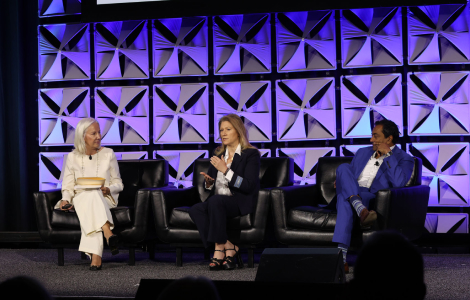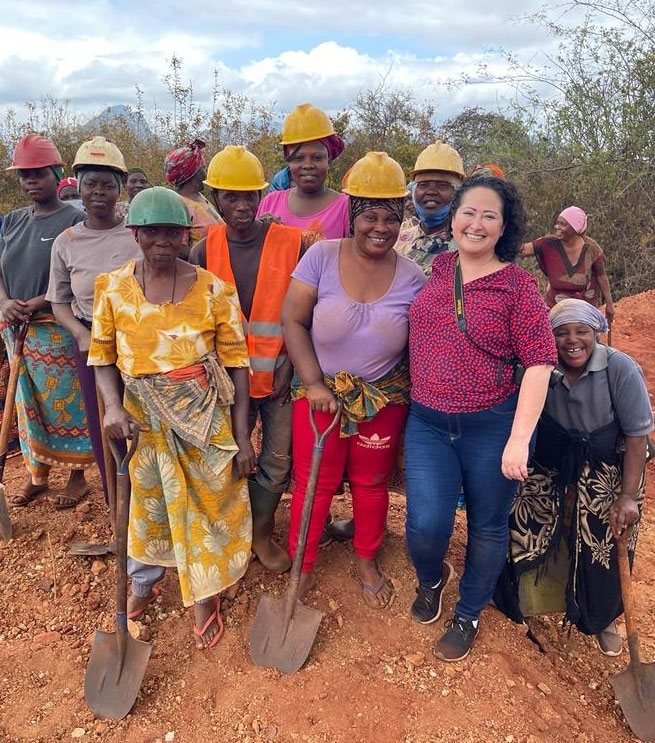Women are central to the watch and jewellery industry – as consumers, designers, employees, and supply chain workers. They drive 90% of global demand for jewellery and make up around 70% of the workforce in jewellery manufacturing. At the same time, women in the industry commonly face adverse social and cultural norms and systemic constraints such as discriminatory laws or gaps in legal protection that hamper their advancement in both the workplace and marketplace. Emerging regulations to improve gender representation on the boards of listed companies in the EU or increased requirements for companies to report on DEI targets including gender promise a pathway forward, but business must play its part to advance gender equality.
At WJI 2030, women’s empowerment is key in our commitment to ensuring inclusive and responsible value chains. As an initiative, we support the Women’s Empowerment Principles and launched a partnership with UN Women to advance gender-responsive procurement through a pilot project. We will soon announce additional workstreams to support our members in promoting gender equality in their own operations and value chains. In the meantime, the following resources developed or curated by our partner BSR offer helpful guidance and inspiration for companies seeking to advance gender equality and women’s empowerment in the industry:
REPORTS & ARTICLES:
- Women in the Jewelry Supply Chain: A Landscape Review of Barriers to Women’s Economic Empowerment: Explores the role of women in jewelry supply chains and the challenges they face to their wellbeing and advancement.
- Disrupting Luxury: Creating Resilient Business in Times of Rapid Change: This report from BSR’s Responsible Luxury Initiative offers a roadmap toward a resilient luxury sector and highlights three opportunities for luxury companies to invest in future success.
- How Business Can Build a ‘Future of Work’ That Works for Women: Examines how companies can build future of work strategies that work for women.
- Making Women Workers Count: A Framework for Conducting Gender Responsive Due Diligence in Supply Chains: Provides recommendations as to how brands and suppliers can conduct better and more effective gender-responsive due diligence.
- Supporting Women in the Luxury Supply Chain: A Focus on Italy: Sheds light on challenges faced by women workers in the Italian luxury sector and provides practical recommendations to address gaps and concerns raised by women workers.
- The Power of Procurement: How to Source from Women-Owned Businesses: Provides the tools and techniques for reducing or eliminating these barriers and for leveraging the vast untapped economic potential represented by women-owned businesses.
- Legal frameworks for gender-responsive procurement: A comparative review of regulatory and policy measures and international and national legal norms: Enhances stakeholder understanding of the legal, policy, and regulatory frameworks in which procurement is embedded, with a view to supporting the development and implementation of more gender-responsive policies and practices.
TOOLKITS & GUIDANCE:
- WEPs Gender Gap Analysis Tool: Business-driven tool designed to help companies from around the world assess gender equality performance across the workplace, marketplace, and community.
- Diversity, Equity, and Inclusion (DEI) in Supply Chain Resource Hub: A resource hub that aims to centralize and share the different tools BSR has developed to help companies and organizations integrate diversity, equity and inclusion into their supplier management systems and approaches.
- Gender Equality in Codes of Conduct: Provides a framework for companies to integrate gender equality considerations into the standards they use to set supply chain ethical requirements.
- Gender Equality in Social Auditing Guidance: Identifies the main improvements required for gender-sensitive social auditing and provides recommendations, practical advice, and relevant examples on how to effectively integrate gender considerations into audits.








